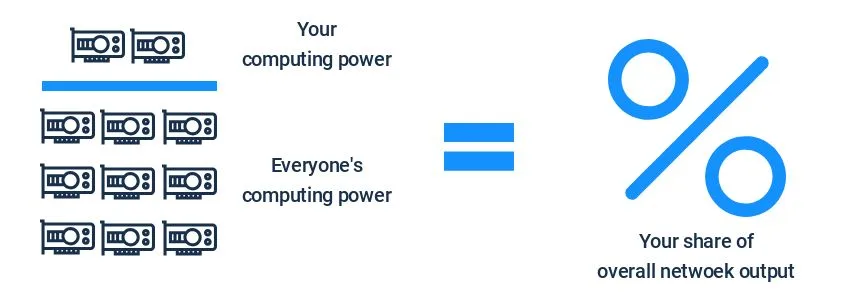The ultimate guide to cryptocurrency mining: Part 4

Is it more profitable to mine Ethereum or bitcoin in Australia?
This is the fourth part of a blog series on cryptocurrency mining. Part one covers an introduction to encryption and decryption. Part two discusses the blockchain and mining. Part three covers how to calculate costs and returns for bitcoin. Here, we will look at an alternative method to calculate returns for other currencies.

Calculating costs and returns: Method 2
Last week we looked at bitcoin, but what about other currencies? Well, it turns out that the mining equations for other currencies are not as easily available as the one for bitcoin, though there is another way to calculate the theoretical cost of mining any cryptocurrency. This second method is less accurate than using an actual mining formula but is also much simpler.
As we have discussed, the hash rate of any piece of equipment is the rate at which it can crunch numbers to mine cryptocurrency. Expanding out from there, the hash rate of a cryptocurrency is the sum of all the hash rates of all the equipment working on that currency. This is a measure of the total volume of computing grunt going into any particular currency.
At the time of writing, the total hash rate for the Ethereum network stood at 276583 GH/s. The Nvidia GeForce GTX 1070 GPU uses 150W (P) and has a hash rate of 30MH/s (H), or 0.03 GH/s.
If you were mining Ethereum as part of the network using a theoretical rig of exactly ten GTX 1070 graphics cards (excluding supporting equipment), your total share of the overall computing power would be 0.30 / 276583, or 0.0001%.

It’s also possible to find out how many coins a network is producing per day. In the case of Ethereum, it’s 20,378. Your share of this using our theoretical mining rig would be 20,378 x 0.000001 = 0.02 Ethereum. From here, it’s a simple cost vs return calculation:
Cost per day in NSW = 10 * ((P x 24) / 1000) * E = 10 * ((150 x 24) / 1000) * 0.32 = $11.52
Return per day= 0.022 Ethereum = $21.43
Bingo! From this simple calculation, it looks like it’s a far better idea to mine Ethereum than bitcoin in Australia .
What happens if we run the same calculation with bitcoin?
| Ethereum | Bitcoin | |
|---|---|---|
| Network hash rate | 276583 GH/s | 27791333 TH/s |
| Mining unit hash rate | 0.03 GH/s | 18 TH/s |
| Mining unit power consumption | 150 W | 1650 W |
| Number of units | 10 | 1 |
| Coin value | $970 | $12,206 |
| New coins mined per day | 20,378 | 1,800 |
| Cost kWh | $0.32 | $0.32 |
| Return in cryptocurrency | 0.022 | 0.001 |
| Return fiat | $21.43 | $14.23 |
| Cost fiat | $11.52 | $12.67 |
This method indicates that while it might be profitable to mine bitcoin in Australia, it's nowhere near as profitable as Ethereum. This shows how this method is far less accurate than last week's process, but it still a useful tool for determining the relative sensibility in mining any coin vs another.
This concludes my four-part blog. I hope you found it interesting. Numbers are all correct as of the time of writing each part of the blog, spanning several weeks. Make sure to check the recent value for all these coins, as they change regularly.
Graham Cooke's Insights Blog examines issues affecting the Australian consumer. It appears regularly on finder.com.au. If you enjoyed this, you might be interestid in checking out our HODL That Though podcast.
Picture: Shutterstock
Ask a question
